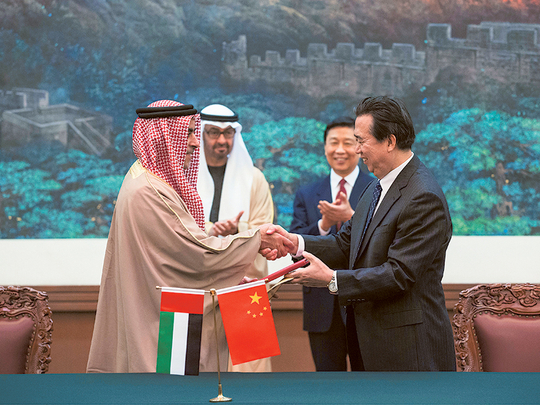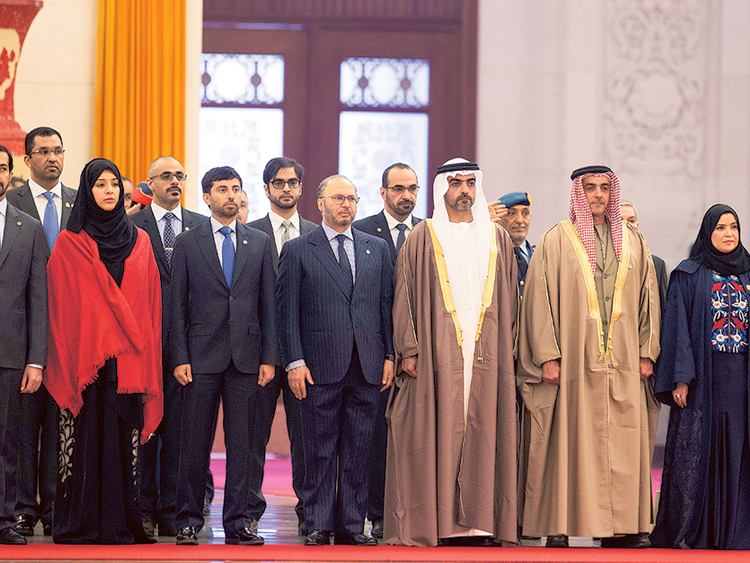
Dubai: Efforts to internationalise China’s yuan were strengthened on Monday with an agreement signed between the UAE Central Bank and the People’s Bank of China.
The two central banks inked a deal “for the purpose of purchasing, selling, repurchasing and reselling of the Emirati Dirham against Chinese Yuan and vice versa,” state news agency WAM reported.
Internationalising the yuan is a “major drive” of China’s 12th Five-Year Plan (2011-2015), Alp Eke, Senior Economist at the National Bank of Abu Dhabi, told Gulf News by phone.
China wants more cross-border use of yuan and has signed bilateral currency swap agreements with a number of countries.
“There is a big push by the Chinese government especially the central bank on internationalisation of renminbi,” Eke said using an alternative name for the yuan. “They’re trying to shoot for an alternative currency to the [US] dollar.”
The yuan is the fourth most used currency in the world, jumping nine places in the last few years after recently passing the Japanese yen. On December 1, the International Monetary Fund (IMF) announced it had added the yuan to its official currency basket. There are only four other currencies in the basket; the dollar, British pound, euro and the yen.
Monday’s deal will also be a boost for trade between the UAE and China that was worth nearly $55 billion (Dh201.85 billion) in 2014 and some market watches and diplomats expect that to climb to $60 billion this year even though the bulk of trade is oil, which is valued at far less than it was a year ago.
Eke said the agreement will “facilitate trade” by simplifying transactions that are currently complicated by multiple conversions to the dollar, which the UAE dirham is pegged to.
WAM reported the agreement aims “to encourage mutual trade and direct investment.”
The deal was signed during a state-visit to China by His Highness Shaikh Mohammad Bin Zayed Al Nahyan, Crown Prince of Abu Dhabi and Deputy Supreme Commander of the UAE Armed Forces.













